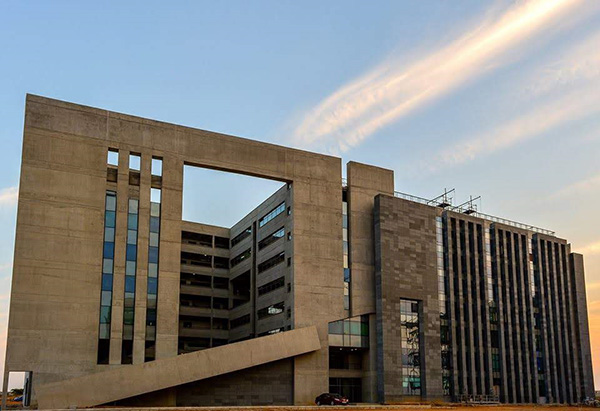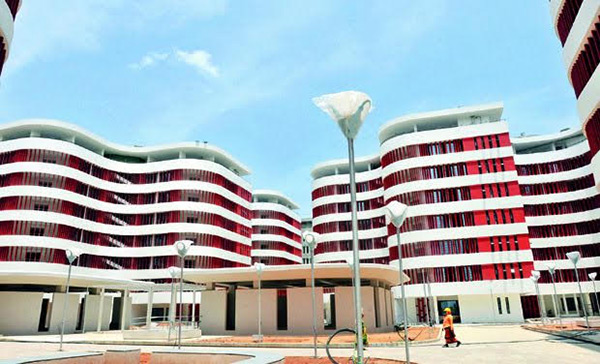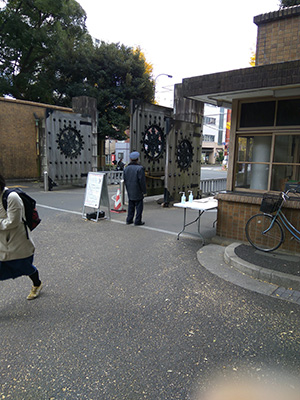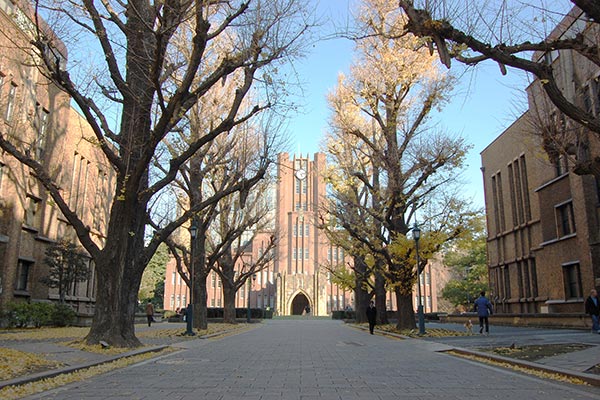Sakura Mentor
Comparison of Masters in Japan and India - Part 2
Rahul Maroju
Updated in October 2023
In the previous column, I described some basic details of pursuing Masters in Electrical Engineering in my alma mater in India and Japan. In this column, more details about the progress of the program is discussed.

 IIT Hyderabad Campus
IIT Hyderabad CampusPhoto: Rahul Maroju
Semester schedule:
In IITH (Indian Institute of Technology Hyderabad), the Fall semester duration is Aug – Nov. Dec is holidays. The Spring semester duration is from Jan – Apr. Then May – Jul are holidays again. During holidays, the courses don’t run, but a typical Master’s students is expected to work by coming to the laboratory every day. The supervisor’s permission is required to pursue any programs like internships or external research or even visit home for a few days!
In UTokyo, the Fall semester duration is Oct – Jan. Feb and Mar are holidays. The Spring semester is from Apr – Jul. Aug and Sep are holidays again. During holidays, the students are free to pursue anything according to their interest. Many students still come to lab and continue their research. Few students go home, spending some time learning some new skills, preparing for job interviews. Generally, the supervisor recommends the students to progress their research and will probably be available to support them even during holidays.
Courses:
In both the universities, a fixed number of courses must be completed as a requirement for completing the program, some of which are mandatory, and others can be chosen. The student is also free to exceed this limit by obtaining credits for more courses than required.
In IITH, the student is expected to choose most of the courses related to their specialization as their course registration must be approved by an appointed faculty member. However, few courses apart from their specialization can be selected too.
In UTokyo, the course selection is completely the student’s choice as there is no approval involved. However, instructors of some courses may post some conditions to be enrolled, which should be noticed by the student before making the decision. The number of courses run in UTokyo is far higher compared to IITH. However, many of them will be taught in Japanese, so the challenge for international students is to find relevant courses in English. So, it is possible that a student completes courses unrelated to his/ her specialization!
Supervisor selection:
In IITH, the decision occurs after the 1st semester. Candidates apply for a competitive section with the order of preference of the supervisors affiliated to their specialization. For example, a student in Communication and Signal Processing (CSP) can only select supervisors affiliated to CSP. The selection is based on the GATE score and the grade point average (GPA) of the 1st semester. Once the supervisor is allocated, the student is expected to perform research under their supervision for the entire program. There could be a co-supervisor appointed who support their research too.
As mentioned in the previous article, in UTokyo, the name of the prospective supervisor must be mentioned in the IME application form before admission. After selection, he or she shall act as the supervisor until the end of the program.








 University of Tokyo Campus
University of Tokyo Campus University of Tokyo Campus
University of Tokyo Campus